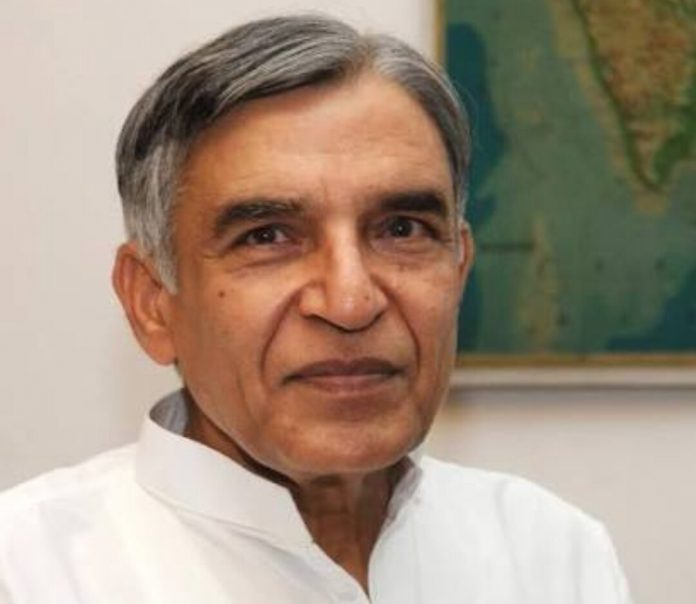Chandigarh
11 December 2017
DIVYA AZAD
Pawan Kumar Bansal, ex-MP and former union minister has submitted his objections to the parking policy announced by the Chandigarh Administration. In a letter written to the UT Chief Architect in response to objections invited by UT, Bansal has requested that wider consultations be held with different sections of stake holders like RWAs, Traders’ bodies, Industry, Institutions, Members of MC, Zila Parishad, PRIs, Market Committee etc. and employees before taking a final decision in the matter.
He said it mandatory plying of staff buses by companies with more than 50 employees may be well intentioned but will be counterproductive if a bus has to take a lengthy route along the outer boundary as also move on internal roads of the UT to pick up employees from far separated places. It will mean waste of time and precious fuel besides proving uneconomic for some industrial units whose employees may be commuting on bicycles.
Essential details are completely missing on the Working Place Parking Levy (WPPL), he said. He has said administration has come up with two unreasonably heavy levies in the form of Certificate of Entitlement (exceeding even the value of the car) and road tax up to half the price of 2nd car and if any car, even the first costs Rs. 10 lakes and above, still road tax of up to half the price of the car. This will prove counter the GOI policy to encourage car manufacturing in the country and sounds regressive when looked at closely.
This provision misses another very relevant point viz. it talks of a household whereas in large number of cases one household consists of more than two families i.e. the parents and married sons working at different places but living as a joint family. Even their spouses may be going to different places of work. Therefore, this rule of one car per household is grossly unjust and will work great hardship in most of the cases. As such, this rule should be expanded to prescribe one car per person. Otherwise, people are likely to get their cars registered in the adjoining cities of Punjab, Haryana and H.P. This will cause a major loss to UT revenues without solving the problem, the letter states.
Community Parking may sound all right at neighborhood commercial and government institutional parking lots but private or semi government institutions may not be legally liable to offer their spaces for the purpose. And will it not amount to say, schools using their space for commercial purposes? Further, some RWAs may not have the means to manage such parking during night time, Bansal has said.
Provision mandating that organisers of functions (which will include marriages etc.), melas, gatherings within the sectoral grid of Chandigarh shall run shuttle service from prominent places is wholly impractical and will involve wasteful expenditure as guests may choose to come on their own vehicles instead of a shuttle service to be run by the host/organiser.
The former MP has said, leaving 15-meter vacant space on the intersections of V-4, V-5, V-6 roads as ‘no Parking zone’ is well intentioned but cannot be put in to practice where small houses abut a road. People living there also own cars but have no space inside their houses to park the same. Perforce, those are parked in front of the houses.
With more than 10 lakh vehicles already plying in the city, to require their owners to file affidavits within three months that they will adhere to parking laws is wholly cumbersome, and will add to official work of ensuring compliance and is unnecessary. Every citizen is legally bound to follow law of the land and no affidavit is ever required for the same, he has stated.
The provision of ECS under Parking norms is unintelligible to an average person, including myself. He has further stated, Provision of stilt parking is welcome but extra height of the building need to be allowed for the purpose, adding, otherwise, it may not be attractive as it will consume one floor if FAR and height are not enhanced. It will also constrict the living space which was enhanced in case of residential buildings some years back to provide for optimum utilisation of scarce land resource in the city and encourage rental housing as also creating additional space within the four walls of the houses for residence of domestic helps.
Formula for determining Parking rates under the Pricing methodology will lead to exorbitantly high rates. It needs to be moderated, he has said, adding, idea of a mass rapid transport systems seems to have been mistakenly given up. Why then is it mentioned for prescribing Transit factor?, Bansal questioned.
























































